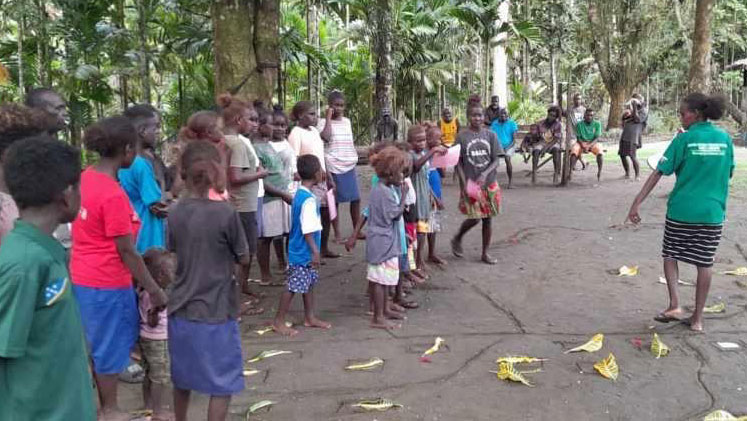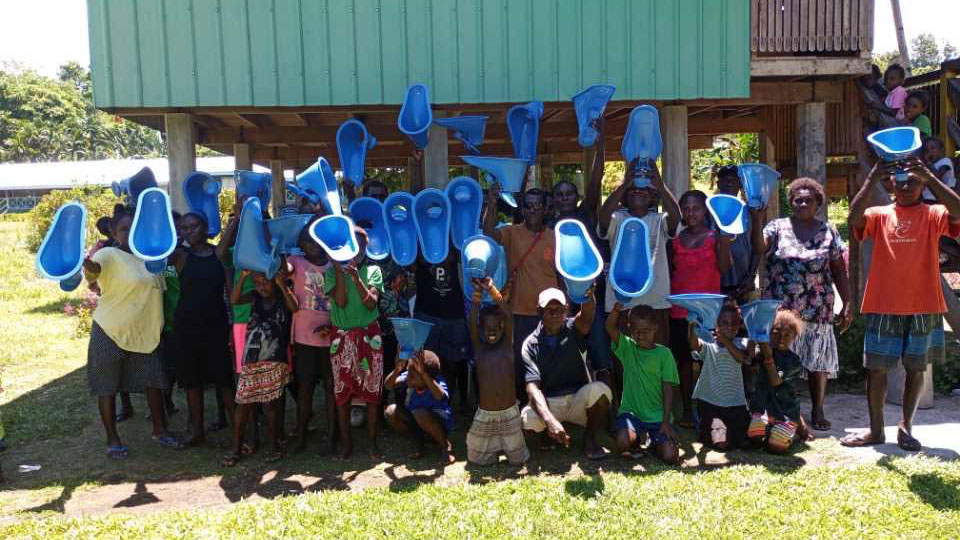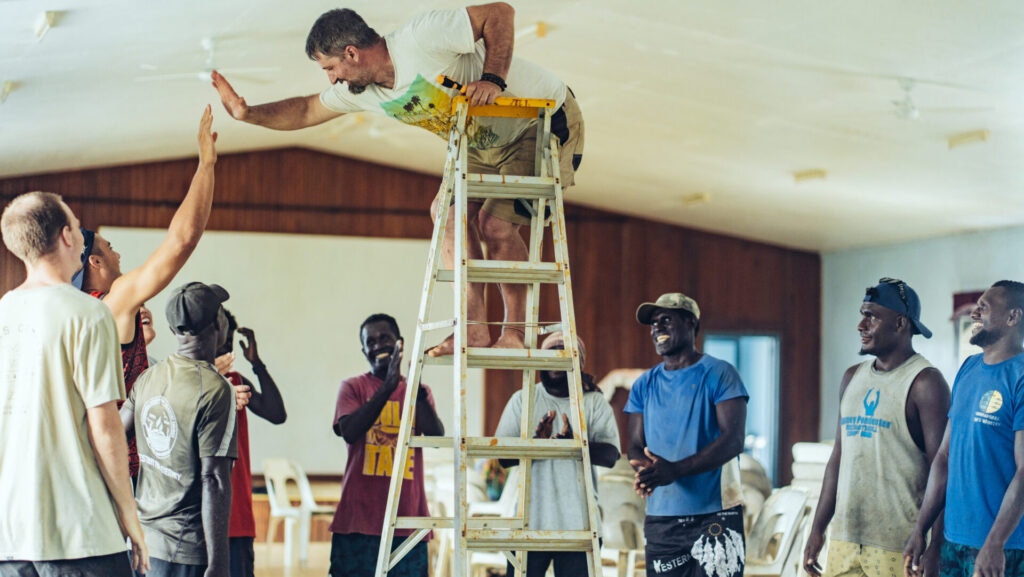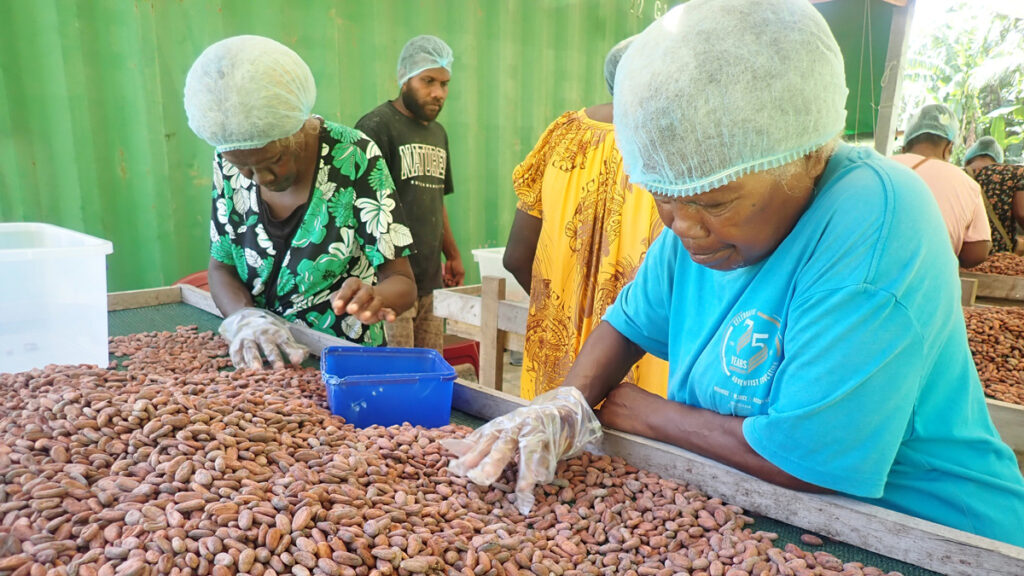Communities in the Solomon Islands are being transformed after gaining access to essential sanitation facilities for the first time.
The Adventist Development and Relief Agency (ADRA) Solomon Islands has implemented a sanitation awareness program, which has included the provision of SaTo pan toilets across the three islands of Rannogah, Vela and Kolobangara in the Western Province.
The SaTo pan, equipped with mechanical and water seals, closes off pit latrines from open air. This reduces disease transmission from flying insects and mitigates unsanitary conditions associated with open-air facilities. It not only addresses sanitation challenges but also conserves water resources by reducing the volume required for flushing.
The sanitation program is part of the Solomon Islands National Sanitation Sustainability Plan (NSSP) Phase Two program, funded by Australia’s Department of Foreign Affairs and Trade (DFAT) through the United Nations Children’s Fund (UNICEF) and implemented by ADRA. The NSSP program aims to enhance sustainable sanitation services at both provincial and national levels while promoting improved hygiene practices within communities.
Vela Office is currently partnering with the Ward Development Committee (WDC) of Bilua Ward 8 in South Vela to implement its sanitation program.
WDC compliance officer for Ward 8 South Vela, Andrew Lupapitu, said under the partnership with ADRA Vela, the WDC has been able to fund 10 communities, providing SaTo pan toilets and bags of cement across Bilua Ward 8 in South Vela.
As part of the initiative, Mr Lupapitu officially handed over 39 pan toilets and five bags of cement to Kolokolo community on March 25, to kickstart their sanitation program.
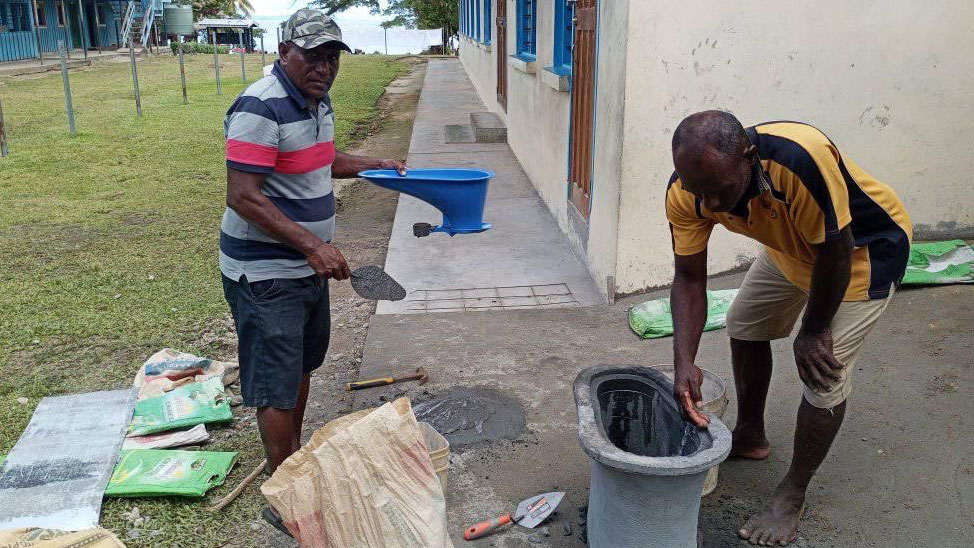
Staff houses at United Church Primary School in south-east Vela were the first to have the pan toilets installed, and teachers Patrina Lonipitu and Lavinta Kanave expressed the impact it has had.
“Since the installation of these toilets, our lives have been transformed,” Ms Lonipitu said. “We no longer have to endure the unsanitary conditions of the old toilets or rely on beach visits for sanitation needs. ADRA’s intervention has truly transformed rural living.”
Costas P Vigopala, a recipient of the pan toilet from Kolokolo, echoed this sentiment, and expressed his appreciation to both ADRA and WDC for their partnership.
“I would like to thank WDC for funding these SaTo pan toilets and cement for us since we don’t have the money to purchase them. Money is very scarce here in the village,” Mr Vigopala stated.
Meanwhile in Rannogah, ADRA Solomon Islands has been actively engaging with village leaders, conducting sanitation awareness training and consultations to foster a deeper understanding of the NSSP program’s objectives and implementation strategies within communities.
ADRA Rannogah project coordinator Jason Boso said the training sessions went well and he was satisfied with the level of community participation and the positive feedback received. The program will conclude in September.
